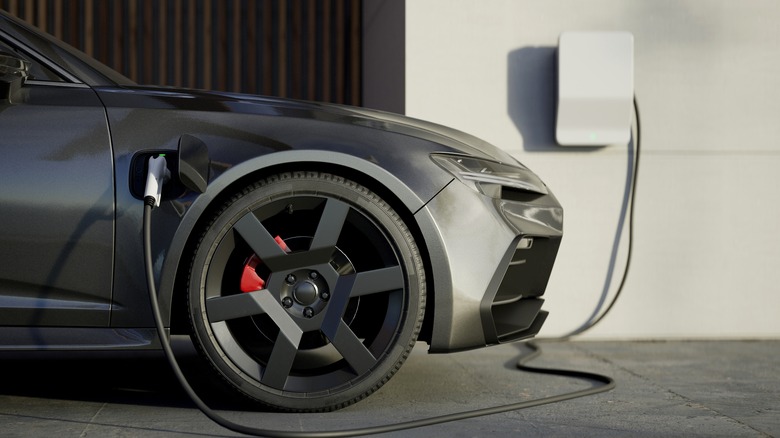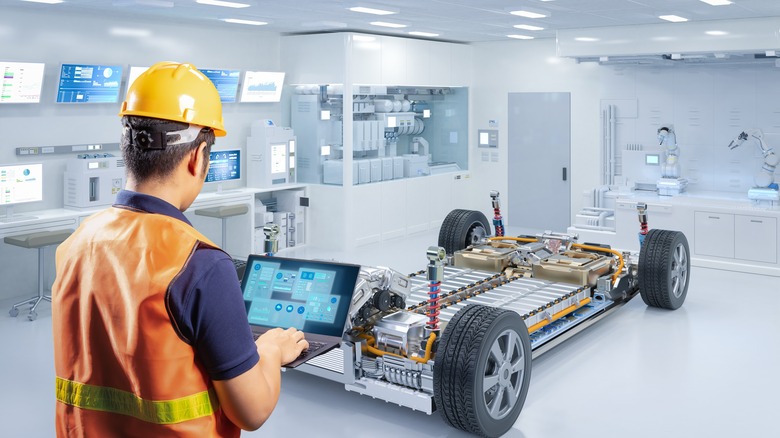Are Electric Cars Actually Less Reliable?
Among the many proposed benefits of electric vehicles versus traditional gas-powered cars, one of the most attractive is their overall simplicity. A traditional car's framework, built around an internal combustion engine, has a lot of moving parts that need to work precisely with one another. Should one of those parts fail, the whole thing becomes dead weight. By contrast, most of an EV's operations boil down to its battery and onboard computer. There's still potential for parts failure, but a lot less. Or at least, that's the assumption. The truth, however, may actually be the opposite.
According to a survey conducted by Consumer Reports back in December, EVs, generally speaking, have a higher failure rate than traditional cars. CR compiled a list of problems and failure reports from its subscribers for the entirety of 2022, then checked that against a list of EVs constructed since 2000. While this does mean that the data is skewed toward those who subscribe to CR, the numbers do paint an interesting picture of EV reliability.
Potential EV problems
Based on CR's findings, the most common problems that have plagued EVs in recent years are "associated with battery packs, charging, electric drive motors, and unique heating and cooling systems that are required on vehicles that lack a conventional engine."
Basically, rather than a single component breaking or failing, these EVs have experienced problems with their entire power systems. If the power system fries, then the rest of the car is completely inoperable.
CR posits that this instability is a result of the relatively new technology that goes into EVs. The original two-seat automobile was invented all the way back in 1885, and has had well over a hundred years of development and innovation put into it since. While EVs have technically been around just as long, it's only in the last couple of decades that they've reached their current form, and they are still a very young technology. Additionally, a lot of newer EVs have flashier features like infotainment systems, which is just one more experimental aspect to worry about breaking.
Technology advances very fast these days, but there's no substitution for old-fashioned trial and error. In all likelihood, in another few decades, EVs will probably reach a more steadfast, standardized format, at which point they will likely be less prone to failure. Until we reach that point, though, current EV owners may just have to live with the fact that their vehicles can spontaneously break down.

